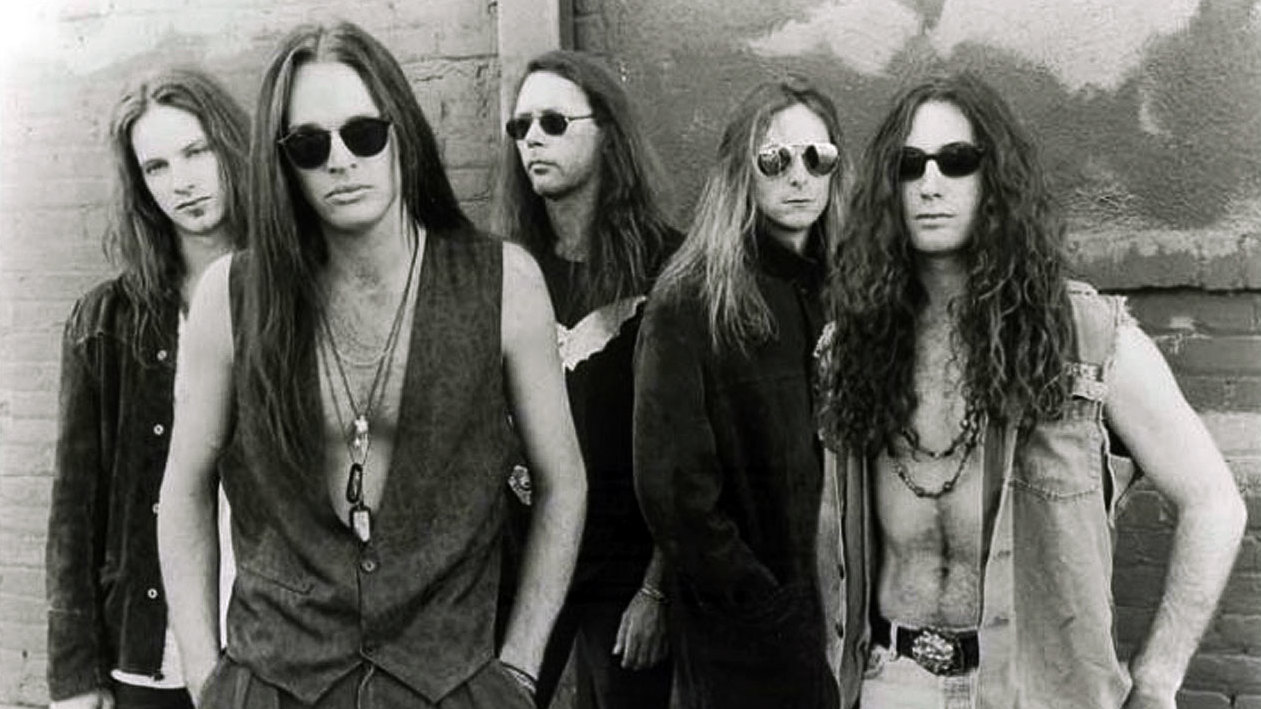“I’m losing my grip and sliding down/ To the end of my rope” – End of My Rope
By the time the eighties limped to a merciful close, flash metal was being systematically ground into diamond dust on two ferociously prolific fronts. For better or worse, grunge was a direct reaction to a decades’ worth of pomp and circumstance, the sound of rock’n’roll righting itself and returning back to it’s ugly, primal, stripped-down roots. Alt-rock, on the other hand, had no interest in glam metal one way or the other. It just did its own thing, free of the cultural and stylistic restraints of the Hollywood glamour camp. They might’ve been both been cogs in the same big machine, but Sonic Youth and the Bulletboys were from different planets entirely.
And that’s just the way it went. So if you were in a long-haired, razzle-dazzle, Marshall stacks and hot wacks rock’n’roll band in the late 80s, you had some shit to figure out. Most flash metal bands were completely blind-sided, unaware that the next power ballad they were writing was actually their epitaph. A few tried to ride the wave, usually with tragi-comic results – see Def Lep’s Slang, Warrant’s Dog Eat Dog, or Kiss’s Carnival of Souls for a few high profile fizzles. It was a fool’s errand, really. Flash metal was an endless party, grunge was a one-way ticket to bummer-town. You don’t put David Lee Roth on Prozac, man. It was like that time Elvis met Nixon, or when the Sisters of Mercy toured with Public Enemy. The vibes were just too weird.
There were also a few glam bands that tried to outright reinvent themselves completely as grungy alt-rockers – remember White Lion’s rebrand as Freak of Nature, or when the Glorious Bankrobbers became Mental Hippie Blood? Jesus, remember Dee Snider’s Widowmaker? All that shit really happened. But in all these instances, it was older bands trying to stay relevant in a rapidly changing environment. There were a few bands that managed to straddle both worlds with relative ease, mostly because they didn’t give a fuck either way. The Front played psychedelic glam with grungy grit, Liquid Jesus were glittery Zep fetishists with a dark grunge underbelly, Underneath What? were both and neither all at once. Perhaps the most famous glam-grunge band was Mother Love Bone, a pitch-perfect blend of Hollywood and Seattle sunk, tragically, by grunge’s lethal self-destruct trigger.
And then there was Asphalt Ballet. Ironically, if you ask frontman Gary Jeffries, he left the band before their second (and last) album Pigs because he was unhappy about record label pressure to “go grunge”, but Asphalt Ballet’s debut was already a masterpiece of grungy glam. There was no place to go, they were already there. Imagine a southern-fried frontman with a spectacularly gritty, bluesy snarl backed by leather-vested LA glam-slammers bashing out high-impact muscle rock with pitch-black themes about poverty, suicide, and street crime. That was Asphalt Ballet. They saw the 90s, the whole dark and dreary decade, and they were completely unafraid. They knew exactly how to walk that thorny path. They fucking got it, man. The fact that they were killed by the thing they helped create is some serious irony.
Jeffries was originally from Louisiana. Like a lot of off-the-radar screamers, he split his hometown for the west coast to find fame and fortune and stumbled into Asphalt Ballet on his way to an audition for Italian shredder Alex Masi’s band. Everything clicked, and the band joined the flash metal fray. In ’91 they released their self-titled debut and scored some buzz on lead single Soul Survives, a high-flying jammer full of flashy guitars and authentic back-alley grit. And then they hit the road on a Spinal Tap-esque doomed mission, touring with flash-industrial also-rans Shotgun Messiah for confused crowds and diminishing returns. And even though their album was already sufficiently grungy, the record label wanted darker and soggier. Jeffries wanted out. He quit mid-tour, and never looked back.
The rest of the band soldiered on, recruiting Tommy Dean on vocals and recording a seldom-heard follow-up, Pigs, before vanishing into the wilds of 90’s rock. Eventually Jeffries got back to his Louisiana roots and formed the bluesy Alligator Stew. The end. Nobody’s clamouring for an Asphalt Ballet reunion, least of all the dudes in the band. But that album remains one of the finest debuts of the 90s, a sterling example of a young and hungry hard rock band embracing a troubling new world with swagger and confidence. Along with Brad Sinsel’s War Babies, it’s a rare glimpse of the kind of dark, moody glam that only the early 90s could’ve spawned.
Next week: Drunks like me

